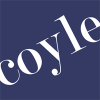Snagging a hard to get — actually, make that nearly impossible to get — reservation at a high-flying restaurant such as State Bird Provisions in San Francisco is an evolving process, currently taking new digital twists and turns.
Crowned by James Beard Awards and Bon Appétit as “Best New Restaurant in America,” getting one of the few seats only made available 60 days in advance requires both persistence and luck. Yet, there were none available, even for the most persistent.
 Where were all the seats going? They were popping up on eBay and on apps. In a city where cracking and hacking of encryption algorithms is kid stuff for many, things happen when demand is pent up. Thus reported ABC-TV, interviewing a UC Berkeley computer science professor who explained how it’s done.
Where were all the seats going? They were popping up on eBay and on apps. In a city where cracking and hacking of encryption algorithms is kid stuff for many, things happen when demand is pent up. Thus reported ABC-TV, interviewing a UC Berkeley computer science professor who explained how it’s done.
The husband-and-wife chef/owner team at State Bird responded by putting aside a percentage of nightly tables for walk-ins, so it’s back to square one for a solution.
In 1998 when OpenTable was founded, it seemed a radical new approach to most everyone, except for the venture capitalists who backed it and a handful of Bay Area restaurants signing up to test the system in beta. Successful to the tune of 15 million seats booked per month, OpenTable is now valued at $2.6 billion in an expected acquisition by Priceline. Essential to the business model is that a membership fee and reservation commission is paid by the restaurant, not by the consumer.
But, turn the tables (pun intended) on that business model concerning the very busiest of restaurants and find that the jury is out on whether paying a fee for a reservation is acceptable to the dining public.
Some restaurants are approaching the matter with finesse, using a yield management model introduced by airlines that spread to hotels and car rental over two decades ago. (Actually, it’s surprising that more top restaurants didn’t embrace this earlier.) What it means, of course, is variable pricing according to demand which is easily bundled into market food cost fluctuations, that result being far more acceptable to diners than cash for a table reservation to a scalper dressed as an app. Look to leaders like Chez Panisse for variable prix fixe according to day of the week and to Alinea owners in Chicago for a still unnamed system of prepaid meal tickets on deposit to eliminate no-shows and cut out middlemen.
ReservationHop is a San Francisco-based startup that books high demand restaurants under false names and charges a fee to release that name to whomever pays the fee.
“Wait, what? So you have to impersonate someone in order to use the service? This is no better than tech-enabled scalping,” writes The Next Web. New York’s Killer Rezzy does likewise, reports Grub Street, pointing out its flaws in placing a $25 fee on a Betony reservation that was available within 15 minutes for free on OpenTable.
How do you think variable pricing will impact service level? Should it? In other words, does a guest who pays for his table deserve a higher level of service and attention than one who does not?
Caveat Emptor and Bonum Appetitionem!













